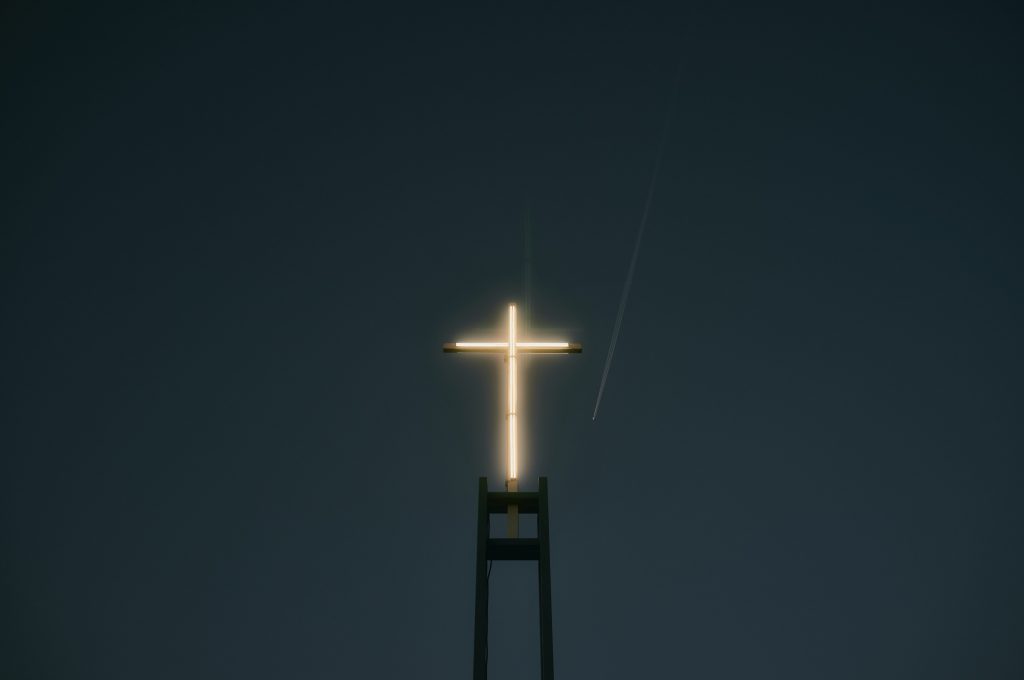
Peter’s confession of Jesus as “Christ, Son of the Living God” is a turning point in Matthew’s Gospel. Not only is it the centre of the Gospel text, but from that moment onward Jesus’ dialogue with His disciples notably changes.
Prior to this, Jesus had said nothing about His Father’s plan of death and resurrection. He only taught the benefits of the Kingdom of God. But from this moment forward, the mechanics of His Father’s fuller plan for the restoration of all things comes to be front and centre; “From that time on Jesus began to explain to his disciples that he must go to Jerusalem and suffer many things at the hands of the elders, chief priests and teachers of the law, and that he must be killed and on the third day be raised to life.”
This is the first of three instances in Matthew’s Gospel where the revealed will of God includes the suffering, death and resurrection of Christ. As it is repeated three times, it is impossible to argue that Jesus did not know what awaited Him in Jerusalem, or that the disciples did not know what awaited Him in Jerusalem. Jesus knew He came to do this, and He repeatedly told His disciples He was going to do this.
His disciples needed to know it too. Up to this point they had seen a man who was clearly more than a man. They had seen Jesus heal, and they had seen Jesus deliver. They had seen Jesus teach and preach. They had seen Jesus weep and rejoice. They had seen Jesus react to all manner of circumstance and all manner of conversation. But they had not yet seen Jesus suffer. They had not yet seen Jesus persecuted. They had not yet seen Jesus – this great God/Man who could raise others from the dead – they had not even considered that He could die. But they needed to know that this too was part of God’s plan. That suffering and death was part of – even the most critical component to – bringing God’s Kingdom come.
They needed to know that for the same reason every Christ-follower needs to know that. Suffering and dying is part of the Christ-life. It is not something to be shirked, but to acknowledge and embrace. Even though the day will come when God does away with suffering and death forever, for now it is part of what it means to imitate Christ. The suffering, crucifixion, death and resurrection of Jesus is God’s way.
Of course, this side of the cross in history, we know that Christ’s suffering, crucifixion, death and resurrection accomplished much. We are saved from the penalty of our own sin because of it. Which means that we can clearly see; though God’s purposes and ways are well beyond our understanding, God truly is good. Moreover, because God is revealed through Christ as good, we can also know that our suffering – and even our death – are not without plan either. Therefore, they are not without purpose, either.
This is something we can only grasp when we are on the ‘other side’ of it all. Till then, we just need to have faith in God and His goodness. This is the core of our faith in God. That He will make it all – even our cruelest suffering – worthwhile. For now we do not see how or why, and it all seems so incredibly frustrating. But one day – all at once – we will know it was all to His great glory, and at the same time to our very great benefit.
But not till we are on the other side. Amen.
When we do not understand why God allows something, we can always know this; undergirding it all is His intense love for us, and in that love, His intense desire for our Christlikeness.
Marcus Verbrugge
APPLICATION: Thankfulness
Be thankful that God will yet redeem the suffering of His saints, in the same way He redeemed the suffering of the Head of His body, our Lord and Christ.

